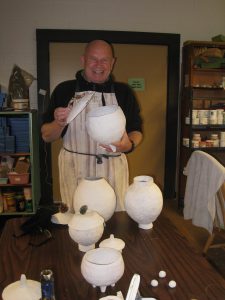“Forgiveness shakes loose the calcification that accumulates around our hearts. then love can flow more freely,” writes Frank Ostaseski* (p. 56; subsequent quotes are from the same book).
I’ve been at the monastery for four days and, for the only time of the year, there are no bells calling us to wake up, go to the meditation hall, assemble for meals, await work assignments, and, following the evening chant, be still and silent into the short night. By the time Christmas eve rolled around, there were just seven us — with many residents away for the holy-days — then eleven, eventually 14 as guests showed up at the door. In the Jewish tradition, we set an extra place for Elijah the Prophet.
We’d all shared in the cooking, without a menu or advance plan; each preparing a dish of comfort food. During the meal, we savoured the gratitude; no one complained of being stuffed. We shared the game of “Talk about your most memorable Christmas gift,” lounged on couches and cushions, played games, tried to remember Christmas songs past their first refrain, and took turns at the new puzzle. One by one, we drifted off to bed without checking the clock.
 My practice here is to make urns from paper-mâché for people to keep, bury, or toss in the ocean the cremation ashes of their beloved. And, as it turned out, to investigate forgiveness. “The refusal to forgive is a way to resist life,” Frank again (p. 60).
My practice here is to make urns from paper-mâché for people to keep, bury, or toss in the ocean the cremation ashes of their beloved. And, as it turned out, to investigate forgiveness. “The refusal to forgive is a way to resist life,” Frank again (p. 60).
Bingo! Until I read that line — following two nights and the long drive from Victoria to Oregon — I’d been reeling from a communication blow-up with a friend. Whatever had been the trigger had long faded but pain in the heart (and neck) persisted.
“We can be very loyal to our suffering. … Forgiveness allows us to let go of pain not by sugarcoating it with positive thoughts, but by allowing our experience to come forward so that we can touch our pain with mercy” (p. 60).
Only when I remembered to embrace my own brokenness, forgave myself for being clumsy in listening and speaking with clarity, that heart-warmth returned. Hallelujah!
“Forgiveness is a fierce practice. It takes real strength, a willingness to be with what is difficult. It asks us to face our demons. It requires absolute honesty. We must be willing to see things as they are, bearing witness to painful acts that happened to us or the harm we may have done to others” (p. 62, italics added).
All in all, a most memorable Christmas. May I be free from fear. May you be free from fear. May all beings be at ease.
Ostaseski, F. The five invitations. What death can teach us about living fully. Flatiron Books, 2017. More here.

You look so happy and well. It’s good to see that.
Papier-mâché is one of my favourite mediums. I must get into it again with my little girls. Looks like you used a balloon for the shape?
Your post on forgiveness was just what I needed this morning. I’ve had a major relationship trauma and have so many questions about forgiveness. Thanks for the post.
I continue to love Salt Spring.
Wishes filled with peace and joy to you.
Oma Brenda
Beautiful words and you as well! Wishing you a healthy and happy New Year Peter!